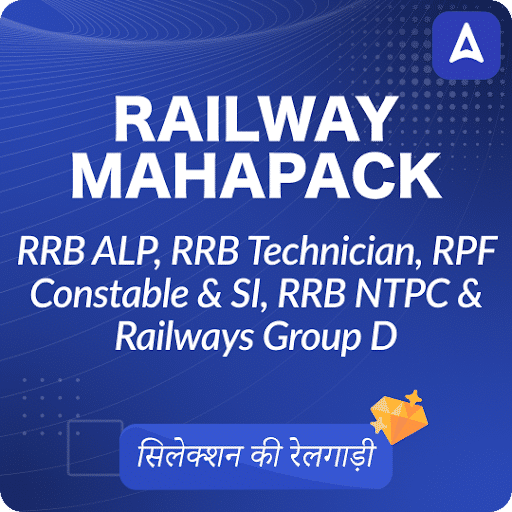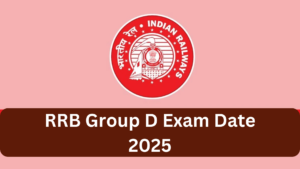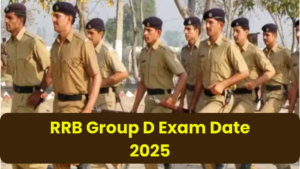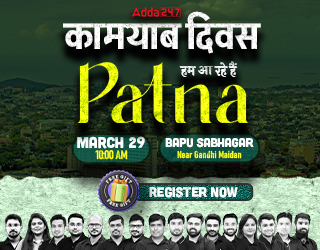Table of Contents
The Railway Recruitment Board (RRBs) will recruit candidates from the Civil Engineering stream for various posts which include Junior Engineers (JE), Junior Engineers (Information Technology), Depot Material Superintendents (DMS), and Chemical & Metallurgical Assistants (CMA).
The candidates from civil engineering must be aware of the detailed syllabus of RRB JE Civil Engineering under Paper 2 of Technical Abilities. Technical Abilities come in the examination for 100 marks for 120 minutes. This is the decisive section of Paper 2 as it contains a huge number of marks in the overall examination.
RRB JE Selection Process 2024
The Civil Engineering candidates preparing for the RRB JE Exam 2024 should be aware of the various stages of the selection process. The suitable candidates will be selected for the Junior Engineer (Civil) post after clearing the CBT 1 and CBT 2 posts. The candidates will have to clear the CBT 1 stage to appear for the Civil Engineering section in the CBT 2 Exam. The candidates can refer to the table below to learn more about the exam pattern.
| RRB JE CBT I 2024 Exam Pattern | ||
|---|---|---|
| Subjects | Total Number of Questions | Marks allotted for each section |
| Mathematics | 30 | 30 |
| General Intelligence and Reasoning | 25 | 25 |
| General Awareness | 15 | 15 |
| General Science | 30 | 30 |
| Total | 100 | 100 |
| RRB JE CBT 2 Exam Pattern | |||
| Sr. No. | Subjects | No. Of Questions | Duration |
| 1 | General Awareness | 15 | 120 min. |
| 2 | Physics & Chemistry | 15 | |
| 3 | Basics of Computers and Applications | 10 | |
| 4 | Basics of Environment and Pollution Control | 10 | |
| 5 | Technical Ability | 100 | |
| Total | 150 | ||
RRB JE Civil Syllabus 2024
The test for the aptitude of the candidates in their engineering fields will be done in the second Computer Based Test. The section named Technical Abilities carries 100 marks and tests the Civil Engineering graduates on their grip over the various concepts of the Civil Engineering domain. We have provided the RRB JE Syllabus 2024 through which candidates can prepare for the RRB JE 2024 Exam efficiently.
| Parts | Subject | Topics |
| Part 1 | General Knowledge |
|
| Part 2 | General Science |
|
| Part 3 | General Aptitude (Mathematics) |
|
| Part 4 | General Reasoning |
|
| Part 5 | Basics Knowledge of Computers |
|
| Part 6 | Fundamentals of Environment |
|
| Part 7 | Technical Abilities |
|
RRB JE Civil Syllabus
Understanding the RRB JE Civil Syllabus will help candidates learn about the topics asked in the upcoming examination. The topics mentioned below should be memorized by the candidates to get success in the RRB JE examination. Here is the list of topics for the RRB JE Civil Syllabus:
Engineering Mechanics- Force (resolution of force, moment of force, force system, composition of forces), Equilibrium, Friction, Centroid and Center of gravity, Simple machine
Building Construction- Building components (substructure, superstructure), type of structure (load bearing, framed and composite structures).
Building materials- Masonry materials (stones, bricks, and mortars), Timber, and miscellaneous materials (glass, plastic, fiber, aluminum steel, galvanized iron, bitumen, PVC, CPVC, and PPF).
Construction of substructure- job layout, earthwork, foundation (types, dewatering, coffer dams, bearing capacity).
Construction of superstructure- stone masonry, brick masonry, Hollow concrete block masonry, composite masonry, cavity wall, doors and windows, vertical communication (stairs, lifts, escalators), scaffolding, and shoring.
Building finishes- Floors (finishes, process of laying), walls (plastering, pointing, painting), and roofs (roofing materials including RCC).
Building maintenance- Cracks (causes, type, repairs- grouting, uniting, epoxy, etc.), settlement (causes and remedial measures), and re-baring techniques.
Building drawing- Conventions (type of lines, symbols), planning of building (principles of planning for residential and public buildings, rules and byelaws), drawings (plan, elevation, section, site plan, location plan, foundation plan, working drawing), perspective drawing.
Concrete Technology- Properties of various types/grades of cement, properties of coarse and fine aggregates, properties of concrete (water-cement ratio, properties of fresh and hardened concrete), Concrete mix design, testing of concrete, quality control of concrete (batching, formwork, transportation, placing, compaction, curing, waterproofing), extreme weather concreting and chemical admixtures, properties of special concrete (ready mix, RCC, pre-stressed, fiber reinforced, precast, high performance).
Surveying- Types of survey, chain and cross staff survey (principle, ranging, triangulation, chaining, errors, finding area), compass survey (principle, bearing of line, prismatic compass, traversing, local attraction, calculation of bearings, angles and local attraction) leveling (dumpy level, recording in the level book, temporary adjustment, methods of reduction of levels, classification of leveling, tilting level, auto level, sources of errors, precautions and difficulties in leveling), contouring (contour interval, characteristics, method of locating, interpolation, establishing grade contours, uses of contour maps), area and volume measurements, plane table survey (principles, setting, method), theodolite survey (components, adjustments, measurements, traversing), Tacheometric survey, curves (types, setting out), advanced survey equipment, aerial survey, and remote sensing.
Computer-Aided Design- CAD Software (AutoCAD, Auto Civil, 3D Max, etc.), CAD commands, generation of plan, elevation, section, site plan, area statement, 3D view.
Geo-Technical Engineering- Application of Geo-Technical Engineering in the design of foundations, pavement, earth retaining structures, earthen dams, etc., physical properties of soil, permeability of soil and seepage analysis, shear strength of soil, bearing capacity of soil, compaction and stabilization of soil, site investigation and subsoil exploration.
Hydraulics- properties of fluid, hydrostatic pressure, measurement of liquid pressure in pipes, fundamentals of fluid flow, flow of liquid through pipes, flow through open channel, flow measuring devices, hydraulic machines.
Irrigation Engineering- Hydrology, investigation and reservoir planning, percolation tanks, diversion head works.
Mechanics of Structures- Stress and strain, shear force and bending moment, moment of inertia, stresses in beams, analysis of trusses, strain energy.
Theory of structures- Direct and bending stresses, slope and deflection, fixed beam, continuous beam, moment distribution method, columns.
Design of Concrete Structures- Working Stress method, Limit State method, analysis and design of singly reinforced and doubly reinforced sections, shear, bond and development length, analysis and design of T Beam, slab, axially loaded column and footings.
Design of Steel Structures- Types of sections, grades of steel, strength characteristics, IS Code, Connections, Design of tension and compression members, steel roof truss, beams, column bases.
Transportation Engineering- Railway Engineering (alignment and gauges, permanent way, railway track geometrics, branching of tracks, stations and yards, track maintenance), Bridge engineering (site selection, investigation, parts of bridge, permanent and temporary bridges, inspection and maintenance), Tunnel engineering (classification, shape and sizes, tunnel investigation and surveying, method of tunneling in various strata, precautions, equipment, explosives, lining, and ventilation).
Highway Engineering- Road Engineering, investigation for road projects, geometric design of highways, construction of road pavements and materials, traffic engineering, hill roads, drainage of roads, maintenance and repair of roads.
Environmental Engineering- Environmental pollution and control, public water supply, domestic sewage, solid waste management, environmental sanitation, and plumbing.
Advanced Construction Techniques and Equipment- Fibers and plastics, artificial timber, advanced concreting methods (underwater concreting, ready mix concrete, tremix concreting, special concretes), formwork, pre-fabricated construction, soil reinforcing techniques, hoisting and conveying equipment, earth moving machinery (exaction and compaction equipment), concrete mixers, stone crushers, pile driving equipment, working of hot mix bitumen plant, bitumen paver, floor polishing machines.
Estimating and Costing- Types of estimates (approximate, detailed), mode of measurements, and rate analysis.
Contracts and Accounts- Types of engineering contracts, Tender and tender documents, payment, and specifications.
| Check Related Links | |
| RRB JE Syllabus and Exam Pattern 2024 | RRB JE Recruitment 2024 |
| RRB JE Vacancy 2024 | RRB JE Previous Year Question Paper |
| RRB JE Salary 2024 |
RRB JE Cut Off 2024 |




 RRB Group D Exam Date 2025 for 32438 Vac...
RRB Group D Exam Date 2025 for 32438 Vac...
 RRB Group D Exam Date 2025, Check Exam S...
RRB Group D Exam Date 2025, Check Exam S...
 RRB ALP Syllabus 2025, Check detailed Sy...
RRB ALP Syllabus 2025, Check detailed Sy...



